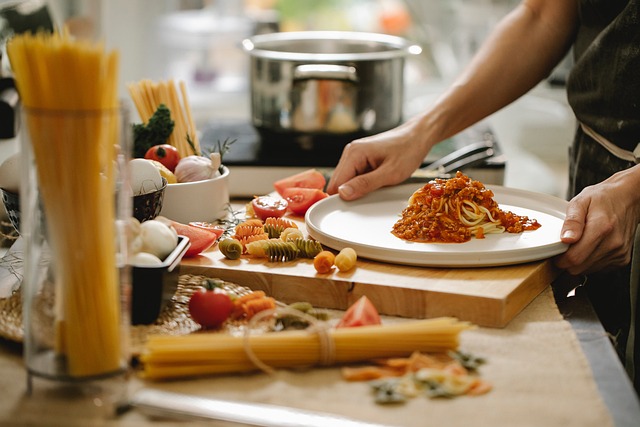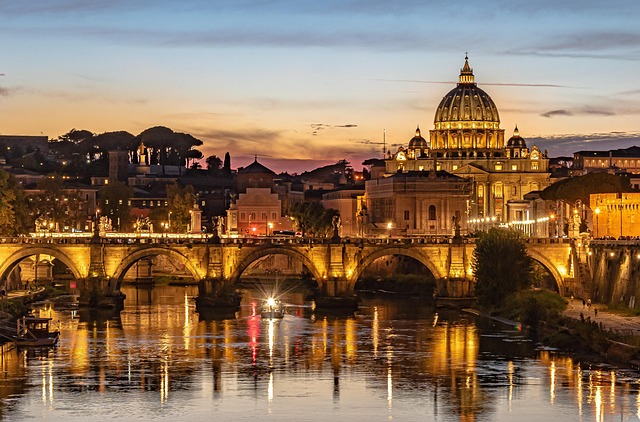Italy’s rich cultural heritage spans thousands of years, from the ancient Roman Empire to the Renaissance to modern times. If you are of Italian descent, preserving your heritage is not only a way to honor your ancestors, but it also helps keep your culture alive for future generations.
Here are some ways to preserve your Italian heritage:
1. Learn the language
One of the best ways to connect with your Italian heritage is to learn the language. Italian is a beautiful and expressive language, and speaking it can help you understand the nuances of Italian culture. You can take classes at a local language school or community college or use online resources like Duolingo or Babbel to learn at your own pace. Practicing with native speakers and immersing yourself in Italian-speaking communities can also help you become more fluent.
2. Cook traditional Italian dishes

Food is an essential part of Italian culture, and cooking traditional Italian dishes is a great way to preserve your heritage. Many Italian recipes have been passed down through generations, and learning to cook them can help you connect with your family history. You can start with simple dishes like spaghetti alla carbonara or bruschetta and work up to more complex dishes like lasagna or osso buco. Sharing your cooking with friends and family can also help spread Italian culture.
3. Give children Italian names
There’s no better way to keep the Italian identity in your family than by giving your children Italian names that preserve the culture.
Here are some girl names to consider: Alessia, Antonia, Bella, Lidia, Lucia, Stella, Viola, and Zita.
Here are some boy names to consider: Dante, Emilio, Mario, Mateo, Cristian, Giannino, and Mano.
4. Explore Italian art and literature
Italy has a rich history of art and literature, from the paintings of Leonardo da Vinci and Michelangelo to the works of Dante Alighieri and Petrarch. Exploring Italian art and literature can help you understand your heritage’s cultural and historical context. You can visit museums and galleries to see Italian art in person, read Italian literature in translation, or learn to read it in the original Italian. Reading Italian poetry or novels can also help improve your language skills.
5. Travel to Italy

Visiting Italy is an excellent way to immerse yourself in Italian culture and see the country where your ancestors lived. You can explore historical cities like Rome, Florence, and Venice, see iconic landmarks like the Colosseum and the Leaning Tower of Pisa, and experience Italian food and wine firsthand. You can also visit smaller towns and villages to see where your ancestors came from and learn about local traditions and customs.
6. Celebrate Italian holidays and festivals
Italian culture is filled with holidays and festivals celebrating everything from religious traditions to historical events. Celebrating these holidays and festivals is a great way to connect with your Italian heritage and share it with others. Some popular Italian holidays include Christmas, Easter, and Carnival, while festivals like the Venice Carnival, the Palio di Siena, and the Festa della Madonna della Salute are also worth experiencing. You can also celebrate Italian-American holidays like Columbus Day and St. Joseph’s Day.
7. Connect with other Italians in your country
Connecting with other Italians in your country is an excellent way to share your heritage and learn from others with similar backgrounds. You can join local Italian organizations or clubs, attend Italian festivals and events, or participate in online communities. These groups can provide a sense of community and help you learn more about Italian culture and traditions.
8. Preserve family history and traditions
Finally, preserving your family history and traditions is essential to preserving your Italian heritage. Talk to your older relatives and ask them about your family’s history, traditions, and customs. Record their stories and memories so that future generations can learn from them. You can also start your own traditions and pass them down to your children and grandchildren, creating a living connection to your Italian heritage.
Keep Your Italian Heritage Alive
When you’re younger, you don’t always appreciate your heritage. It feels like something that “older” people care about. However, as you start a family and begin carving out your own family story, history starts to matter in ways it previously didn’t. As an Italian, there’s no better time to start preserving your history than now. Begin with some of the suggestions outlined above.
Featured Image by Nimrod Oren from Pixabay
